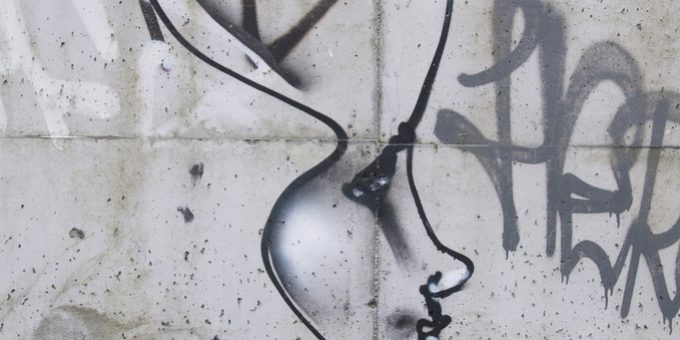
"Low-brow" artist David Choe's work adorns city streets and major art institutions alike. RJ, Flickr CC
Friends in Low Places
Feeling inauthentic? Publicly displaying your appreciation for “lowbrow” art might be the answer. According to Oliver Hahl and colleagues, writing in American Sociological Review, some high-status people love lowbrow culture because it makes them appear more authentic—to others and to themselves.
In general, we detect authenticity in others when we see an apparent consistency between their public-facing self and their internal motives. We expect people to be what they say they are: dancer, doctor, musician, sociologist. This is why the “authentic” musician is the one who strives to be an excellent musician, while the “inauthentic” one is seen as striving for fame.
High-status people may be especially susceptible to claims of inauthenticity (or “status denigration”), because they are successful and may appear to be motivated by success. Many high-status people are aware of this suspicion and experience “authenticity-insecurity.” To counter this feeling, high-status people may turn to lowbrow culture, seen as more authentic because it is produced by or for low-status people, without the promise of status, fame, or fortune. By showing appreciation for lowbrow culture, high-status people can signal to others that they appreciate authenticity—with the implication that they, too, are authentic.
Hahl and colleagues conducted two experiments, looking for evidence of this authenticity-by-association effect. In the first experiment, participants evaluated two paintings, one produced by a fictional artist they were told was high in status but low in authenticity and the other a lowbrow piece produced by a fictional artist low in status but high in authenticity. Participants who were made to feel high-status (through association with a high-status social type) and inauthentic (because their social type was portrayed as status-driven) favored the lowbrow art more than participants who were made to feel authentic. In the second experiment, high-status, inauthentic people were deemed more authentic by study participants when they were presented as preferring the lowbrow art.
The authors ultimately conclude that consuming lowbrow culture can reduce status denigration. But can you consume your way to authenticity? Not quite. As the authors point out, any effort to appear authentic, if detectable, might be taken as evidence of inauthenticity.
